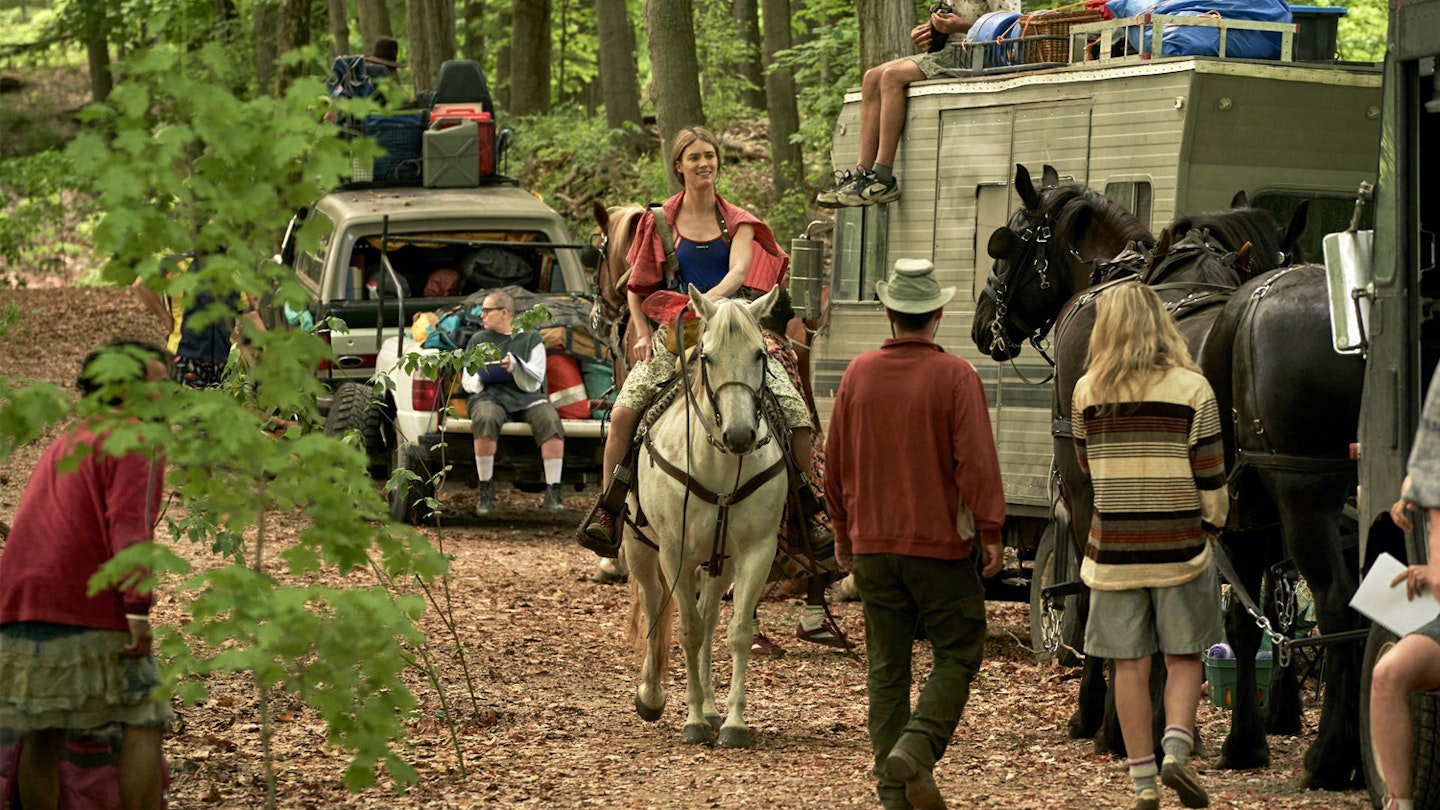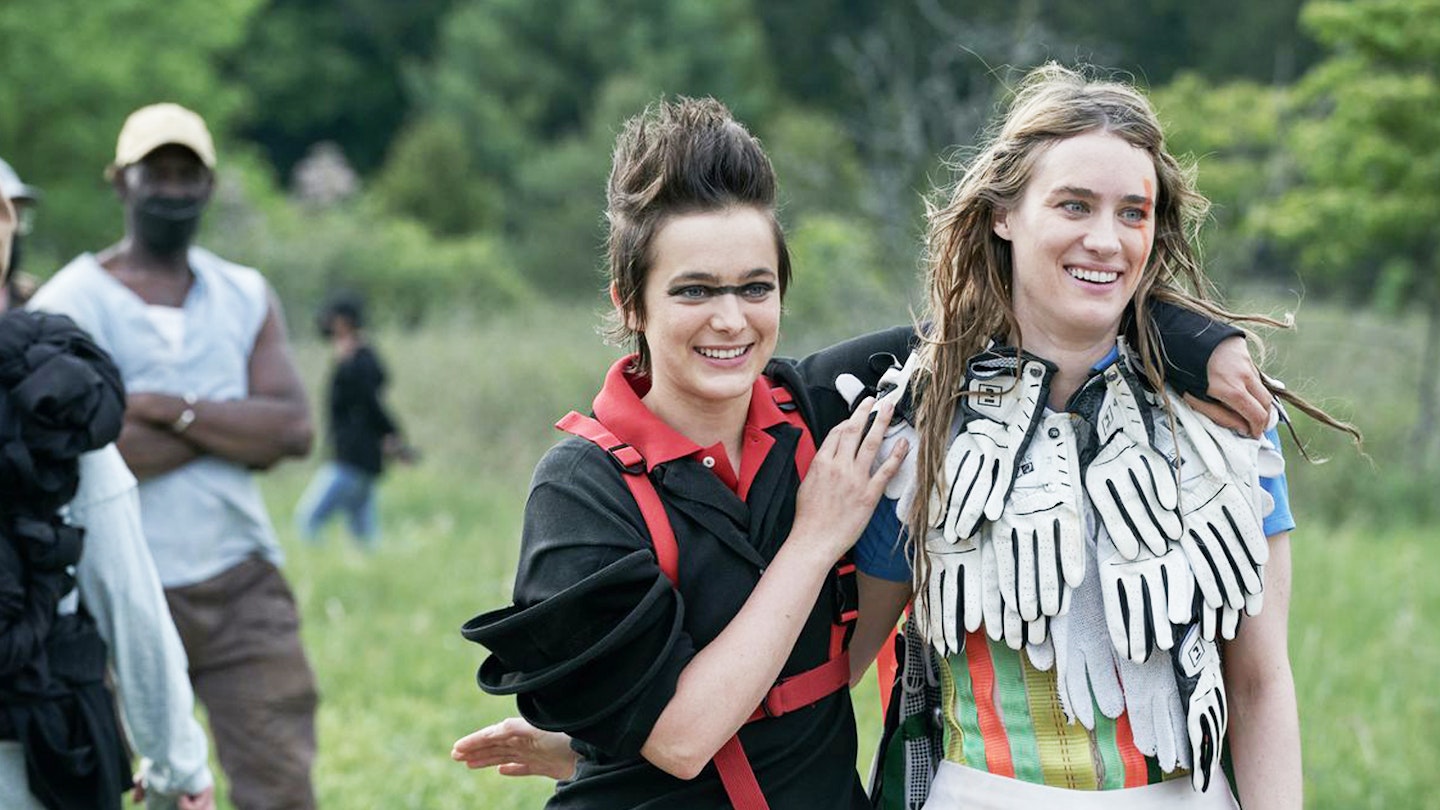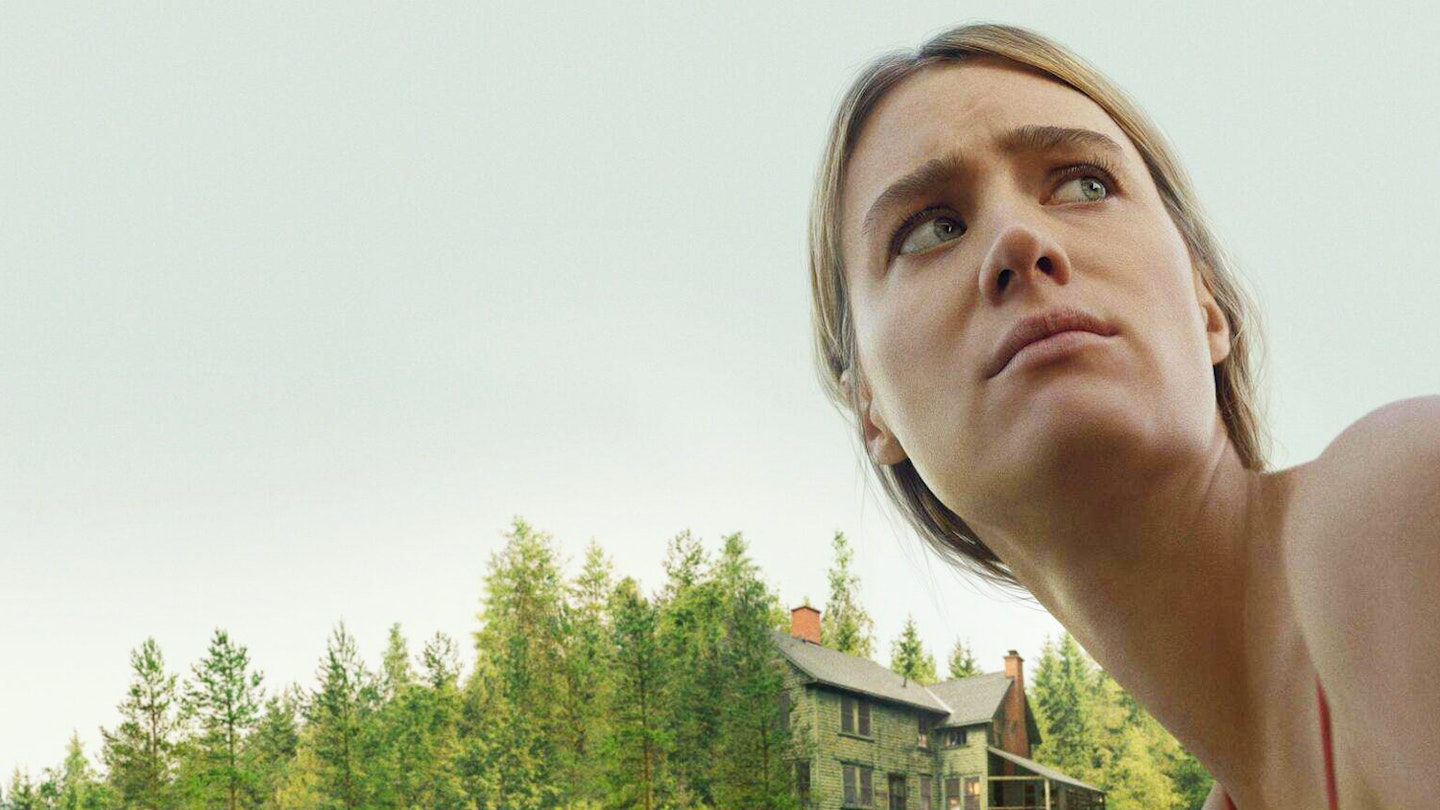HBO mini-series Station Eleven takes place in a world where a lethal flu has led to the collapse of civilisation. Focused on Kirsten’s (Mackenzie Davis) band of travelling players, who continue to perform Shakespeare plays amid the wreckage, it feels like a hard sell for a real world still dealing with a pandemic. But as Davis explained to us on the latest episode of the Pilot TV podcast, the show is anything but bleak. Have a read of the highlights here:
We’re two episodes in to Station Eleven, and it's a lot…
Mackenzie Davis: The pandemic ends and then it gets very hopeful and joyful, you just have to get through the intro!
What was your entry point for creating this character?
I think that, first of all, this is a person who sort of declares who they are as a child, and then the world ends through the most fantastic circumstances possible, she loses everybody in her life, becomes a lone warrior at nine years old, and then somehow finds herself doing the very thing she said she was going to do when she was eight years old. It’s so beautiful, and feels a little bit like a fairy tale.
Something Patrick Somerville spoke about a lot was how when you're in a creative field, or you're making art in some way, it can often feel life or death, even though nobody in your life would recognise that. But to you being involved in it, it feels like the stakes are unimaginably high. And I feel like coupling her on-stage life with her off-stage life and how that is actually life and death, it lent this air of urgency, and how essential it was [for her] to be doing the thing that she was doing. I think even I fall into the trap of being like, ‘Acting is stupid, it’s not real’. I've had to train myself out of treating it like it's not really important to me, because it is. It’s a big deal in my life, and I take it really seriously. So I loved that her artist side was as vital as her warrior side. Those two things existed in one person, and I thought it felt really sort of dangerous.

What's your relationship like with Shakespeare? Did anything trip you up when you had to perform?
I spent a lot of time reading and working on and thinking about the work I had to do in the show. I love Shakespeare. I was given the great gift of getting to work on it with with Giles Block, who worked at the Globe for a long time and. We spoke for six months. Not the entire time, but we just were in conversation about Hamlet and about A Winter's Tale and about King Lear. It was such a pleasurable time in my life to just be back in school really, studying and thinking.
How familiar were you with Lori Petty? What’s it been like working with her?
Tank Girl was huge for me, as it was for so many girls of that era. Lori's so cool. She is so magnetic and dynamic. There are certain people that you’re just like, ‘of course she's a movie star’. Like, what else do you do with that much charisma and energy? You’re just so drawn to her. I really just thought she was a wonderful person and was really attracted to her. I thought she was incredible.
It’s not about a pandemic. It's about how you survive after a huge event, and what you do with your experience that creates beauty for other people.
Was there anything you needed to do to prepare for this role in this apocalyptic environment?
I needed to learn knife throwing, which was fun. I started doing it in the fall while I was in London, actually. And then I moved to Canada over Christmas and for the next many months, and my dad built me a knife throwing board at my parents’ house. I was just leaving Christmas dinner to go throw knives in the afternoon. And then I was teaching him how to knife throw, and we had a whole, nice, sort of knife throwing family for a while. The thing about knife throwing is it's not that sexy. To do it on camera, it has to look really sort of swift and amazing. But to do it accurately is really just treating your arm like this hinge. It's very difficult to do it well, and to do it cool. That was a big learning curve for me.

What’s the key to a sexy knife throw?
Don't try and get it in the board. [Pretend] you don’t have a knife in your hand, and then do a panther stance and just full-body into it. And don't throw your chest into it; that was my big problem. I really was like ‘No, no, the best way is arm at a 90 degree angle and then just never move your feet so that you know the distance all the time…’ But that just doesn't look cool.
Is there a certain quality that you look for when you take these big TV projects?
I think the same thing with TV and movies is just [the question of], do you want to be in conversation with this thing, for anywhere from six months to seven years? Is this something that turns you on enough to keep talking about it with the people that you're making it with, and with people after it comes out? Does it activate something in your mind and challenge you on the day? That's always the thing for me. And also – am I retreading a thing that is so familiar to me? Or am I doing something that feels kind of new and like a strange space to occupy? That's what I try and find. I guess I do a lot of science fiction-y things, but that's pure coincidence.
What are you hoping that people will take away from watching the show?
With the pandemic and the climate and so many aspects of life right now, I feel really sad and fearful, and it feels like the end of something, maybe. But there is this sort of kernel on this show. There isn't a dearth of humanity, there's an abundance of humanity, and opportunities for community and creation and kindness and empathy and all the things we need to survive. It feels like there's some really beautiful arguments for humanity that sometimes, if I read the news, feels in short supply. So it's a much more positive show for me than I think the tagline would make you believe. It’s not about a pandemic. It's about how you survive after a huge event, and what you do with your experience that creates beauty for other people. The cool thing about this show is that you see windows into what other people have created: little settlements and unbelievable advancements, [but also] some people who are living a very simple agrarian life. And I like seeing those different worlds, and that there isn't a monolithic life-after-pandemic vision. There’s all these little iterations of what could happen.
You had us at knives and Shakespeare!
